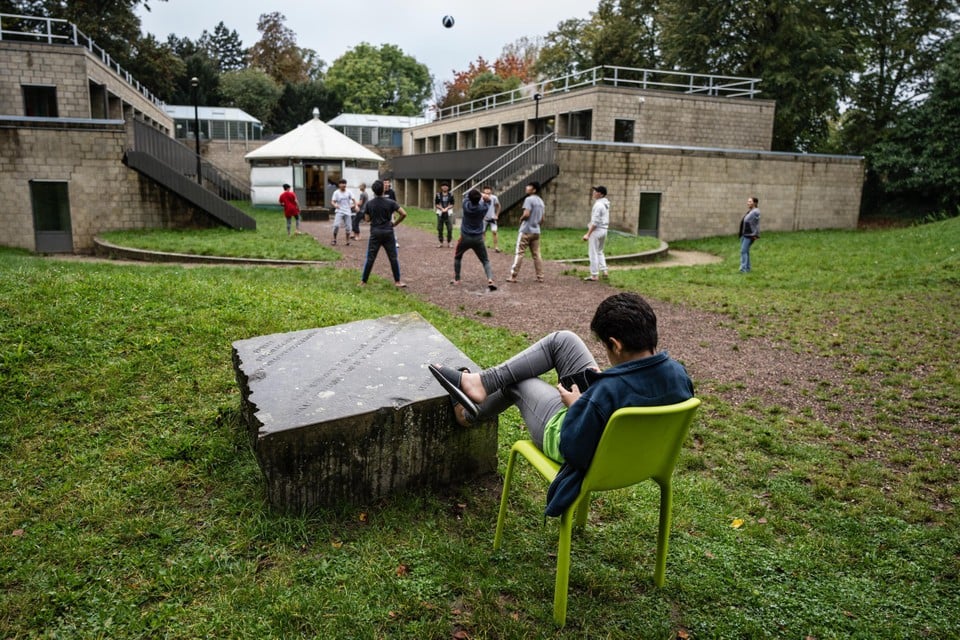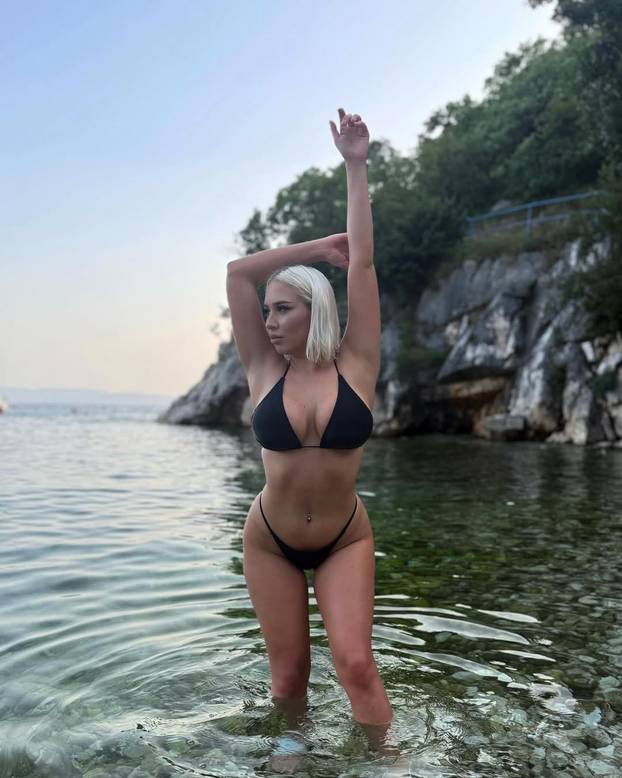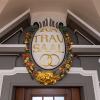Foreign journalism must change after Medin

Before the journalist and author Katarina Bjärvall visited Turkish Kurdistan in March this year, she contacted Joakim Medin for advice on security.
– I was very vigilant. He was one of several people I contacted and to him I had two questions. Partly a safe hotel in Diyarbakir, the largest Kurdish city in Turkey, because I knew he had been there. By certain, I mean a hotel where you are not eavesdropped, where the staff does not report to the police when you come and go, such things. And then I asked for tips on an interpreter and he had a great tip, the interpreter I then used.
When she traveled, the people she consulted were calm. The Kurdish terrorist stamped organization PKK had just exclaimed the ceasefire with Turkey.
– The atmosphere was positive, everyone said « that will go well » and it went well. But I was very careful. I have been freelance for many years, so I do not have the security systems that an editorial staff can have.
Katarina Bjärvall took several precautions. She did not bring her own computer, cleaned her phone as well as it went, turned off cloud services so that the security service could not access her documents over the phone.
– I read a lot before I left but did not bring any compromising texts on the trip. Contact information for people I would meet I had on a piece of paper that I hid in the pack.
Four days after Katarina Bjärvall returned to Sweden, Joakim Medin was arrested at Istanbul’s airport. He now risks one Long prison sentence.
Since President Recep Tayyip Erdoğan came to power in Turkey has Freedom of the press is steadily deteriorated in the country. Terese Cristiansson is the Middle Eastern correspondent on TV4. She has been monitoring Turkey since the coup attempt in the country in 2016, previously lived there for a long time and clearly noticed the development.
– My thoughts now go to Joakim and how he is doing but also to my Turkish journalist colleagues. After all, the most affected are the Turkish journalists. And the situation for them has changed radically during these years. The fact that it is now also sipping over to international journalists is, of course, extremely worrying.

Terese Cristiansson does not see that her work has changed directly due to the arrest of Joakim Medin. But ever since the cleansing of critical journalists Began in 2016, « you got to dance some tango with the Turkish media conditions, » she says. In recent years, she has refrained from making risky posts on social media. And situations arise where you have to renounce.
– In some situations it has been incredibly tense. You can choose sometimes: Do I want to do this or do I want to be able to go in there safely? And you have to review yourself so that you do not start self -censoring, says Terese Cristiansson.
– If you are in Turkey, there are some people you cannot interview, representatives of PKK for example. Because then you are charged with contact with terrorism. So in this way you have to follow the laws that exist in Turkey. But then you can interview representatives of them in other countries and then Turkey should not intervene.
Just this, says Terese Cristiansson, is what is most serious about the arrest of Joakim Medin.
– When arresting a Swedish journalist who has conducted interviews in Sweden, which is legal to do in Sweden. Then it is the next level of restriction on freedom of the press and our opportunities to work freely. Should it start to be so, it is very difficult to be a foreign journalist.

Tomas Thorén, SVT’s correspondent in Istanbul, is also affected by the arrest.
– It shakes about me, as well as the entire international journalist corps in Istanbul. Both the imprisonment of Joakim Medin and the deportation of Mark Lowen have us to completely re -evaluate the risk assessment in reporting from Turkey. The arbitrariness and unpredictability have never been so hit during my 16 years here, he says.
BBC’s correspondent Mark Lowen arrested and was deported from Istanbul At the end of March this year after monitoring the protests against the arrest of the city’s mayor Ekrem Imamoglu, the protests Joakim Medin was about to monitor as he was arrested on his way into the country.
In the Security Manual for Foreign Journalists « Come living home » From 2019, Joakim Medin himself describes how in June of the same year, during a reporting trip, for the fifth time in his life was detained and interrogated by police in Turkey. After listening to a campaign meeting and interviewed a MP from the Kurdish Party HDP, he and he and the interpreter are surrounded by six civilian police officers.
« Two of them immediately start filming us with small camcorders, while a third extends a police tag and throwing out questions to me, » writes Joakim Medin who tells how he played calm with his passport.
« We are detained and it is called that you search for our names in different databases. This means that I have a grinding sense of concern in my stomach for several hours, » he writes.
Journalist Martin Schibbye, For everyday reporter and responsible publisher on the news site Blankspot, Like Joakim Medin was co -author of the Security Manual. And like Medin, he has been arrested and imprisoned during foreign work – in his case in 2011 in Ethiopia, together with colleague Johan Persson. They were convicted but pardoned fourteen months after the arrest. He believes that journalism is too much « on the defensive ».
– We lose areas, areas we cannot operate in. Among fixed, stationed correspondents, there is a self -censorship. Somewhere I think we have to start thinking about: How to raise the effort? How do we get countries to hesitate before they go to a journalist? How do you make it hurt to give up on a journalist?

Martin Schibbye takes an example from Latin America, where he received methods described from the organization reporters without borders.
– You say: Okay, if you kill a journalist, then all the person’s texts will be published in all major newspapers. Do you prevent an examination? Yes, then it will be completed and published, he says.
– If you think of Joakim Medin’s news reporting about Turkish bombings in Kurdish areas. Should we all Swedish media publish them? Should we get the New York Times to publish them? There are good collaborations between publishers all over the world. Joakim’s books – how do we get them out in more languages? How do we raise the effort?
At the same time, says Martin Schibbye, journalism needs to learn to navigate in an increasingly an authoritarian world.
– I think we need to think about both new offensive tools – but also new defensive tools. We may have to start working in teams with local journalists, who can be anonymous. Take advantage of the strength of being able to publish things in Sweden but that the factual collection is done by colleagues in place. Where you can get the presence but at the same time do not have to censor yourself in fear of losing, for example, their accreditation. In Ethiopia, for example, this type of arrangement is already available today.
Freelance journalist Rasmus Canbäck, Which often writes for Blankspot, also sees that new methods are required.
– When authoritarian states tighten the reins for journalists, specialized journalists also need to change their strategies. The wish of the Turkish government is that foreign journalists adapt to their narratives. Sensitive issues such as Kurdish issue are already difficult to monitor – and can probably be even more difficult to report on site in the country in the future, he says.
– One way could be to have a journalist who writes from Sweden critically and another journalist who goes and is in Turkey. We have seen similar editorial strategies in relation to reporting in, for example, Russia.
In the security manual « Come alive », Joakim Medin concludes his text on how he was detained in Istanbul in 2019. The words could also have been pronounced before Wednesday’s trial:
« It’s just as uncomfortable every time because it is never possible to know how it should end. »
Read more:
No one from the government in Ankara for the trial
Sakine Madon: Joakim Medin’s journalism reveals the double world of the Western world
Jonas Gummesson: What is Säpo’s role in the case of Joakim Medin?









:format(webp)/s3/static.nrc.nl/wp-content/uploads/2025/04/04111243/data130287438-072114.jpg)